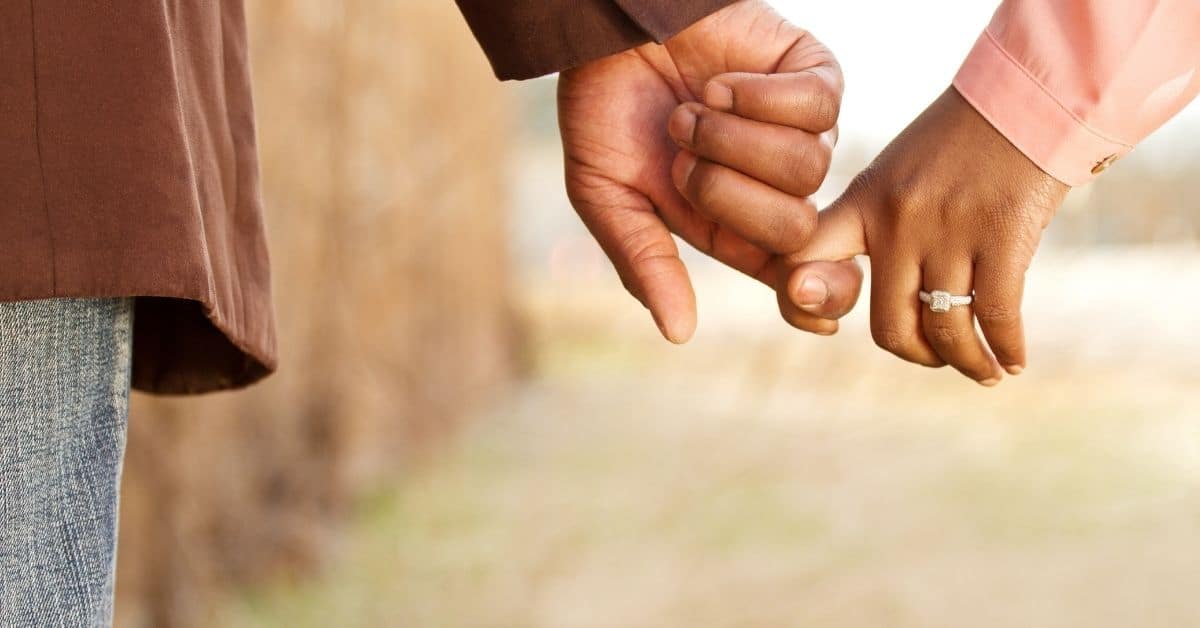Reviewed by Karis A. Williams, MSMHC, LPC, January 13, 2024
Trauma bonds may very well be one of the most evil entities one can experience. In spite of the harm and abuse, somehow, a person is drawn in and trapped by their very abuser in positive moments that make the relationship seem healthy and good. As soon as the trauma bond victim feels comfortable with positive experiences in the relationship, the craziness and abuse begins again. And so goes the roller coaster life of a trauma bonded relationship. The relationship can last for years, and the effects of a trauma bond can last for many more years beyond the relationship.
But specifically, how does a trauma bond affect future relationships? Many people have PTSD or C-PTSD stemming from trauma abuse. Until they work deeply through that, all future relationships will be affected to a great degree. Sounds, sights, smells, almost anything can trigger anxiety or a panic attack, even for that don’t have PTSD. And even for those who have healed and understand healthy relationships, being triggered even in a healthy relationship is something that can and will happen for years to come. So, the short answer is that yes, a trauma bond will significantly affect all relationships going forward.
Let’s take a look at what that looks like in the world at large.
Table of Contents
How a Trauma Bond Affects Future Intimate Relationships
The intimate relationship is by far the one that is most affected by a trauma bond. There are many reasons for this. First, it is harder to hide from a spouse or significant other. If the partner is emotionally healthy, they will see your expressions, your eyes, your body language, sighs, gasps, or other such reactions. And if they know you well, they will pick those things up very quickly.
If you were trauma bonded and have moved on to a new significant other after you have healed from the trauma and your partner is also emotionally healthy, working through the effects of trauma bonding will not be easy. But it will be rewarding, especially as you both see each other working through things in a way that makes the trauma fade and is productive to your current relationship.
If you have moved on to a new significant other without seeking professional healing, your road ahead will be rough. While you may be able to divert triggers, they will still be traumatizing and you may not be able to recover as quickly. It really is critical to get healing. But if you cannot afford a professional counselor who understands your situation and can help, there are other things you can do.
Reading books from professionals is healing, even though you aren’t able to share your feelings or thoughts with a counselor. You will be amazed at reading others’ stories that feel like they were walking right beside you through your trauma. And those books will have great solutions for you to guide yourself back into healthy thoughts and behaviors. Here are some of the best books I read that helped me greatly through my experiences:

There are several other ways to heal from a trauma bond. You can read more about them by clicking over to this article I wrote recently. It actually goes in depth about 11 ways to heal from a trauma bond. As a next step, you will also want to read this article about recognizing and dealing with trauma bond withdrawal symptoms.
Trigger Alert: You Will be Triggered Even by the Best New Significant Other
When you have been through a difficult relationship, triggers are a natural by-product. Even in “normal” relationships, there will be things that trigger you, just not to the degree of harmful triggers. When you see the toothpaste tube squeezed differently than you like it, it may remind you of your previous relationship. Sights, sounds smells, will all bring you back to memories, positive and negative.
It is all in how you handle those triggers or reminders of past difficult relationships. And in the fact that if you realize they are coming you can head them off much better than if you don’t have the foresight to realize they will come and you will need to deal with them in a healthy manner for the sake of your new relationship.
How a Trauma Bond Affects Future Work Relationships
When you have been treated poorly by others at your work, you will find yourself bristled by things that your new boss, coworkers, or even subordinates say or do. Our memories are pretty powerful that way. But you will need to remind yourself that those new people at work are not the same as the person that mistreated you. They may or may not intentionally trigger you. They likely aren’t toxic for you to work with. But in some cases, they may be. There are toxic people in the workplace almost everywhere there are people. It will be your job to handle those triggering moments wisely.
First, you must recognize what it is that is triggering you. Then, you must learn whether you are being triggered based on your own past or if the trigger is something that actually is a problem. Often something from your past work relationship will trigger you and it is not wrong for you to feel that trigger. But you will need to handle it in a healthy way.
If the behavior that triggered you was not harmful, then the best thing for you to do would be to reason it out with yourself. No need to take an issue to others that is based on your history and not an issue in your current work relationships. Note here that I am NOT saying for you to excuse bad behavior. If it was actually bad behavior that triggered you, then by all means, you must deal with it. Speak to the person and see if maybe they didn’t mean to offend you or treat you badly. If they respond well and resolve the issue with you, you are good. If they don’t and the triggering behavior continues, you may need to go to others who can help get the issue resolved. Find out if there is onsite counseling at your workplace or if human resources can guide you to a place you can get the help you need to help make things right. Speak to your manager/boss (as long as they are not the one triggering you), but make sure that person is a safe person to take your issues to. You may want to speak with your counselor if you have one or a trusted friend who is emotionally healthy before bringing things up at work that could cause a stir.
The bottom line here is to make sure your triggers are legitimate issues before going to others in the workplace to get them resolved. You can cause way more problems than you solve if you are not perceiving the situation for what it is.

How a Trauma Bond Affects Future Family Relationships
Your trauma bond affects future family relationships in a few different ways. It really depends on the family dynamic. Let’s take a look at them.
First, if your family is not emotionally healthy, there will be triggers all over the place for you to try to navigate. Often, this becomes impossible and you may need to distance yourself from your family. If they defend your former abuser and discount your healing and behaviors that trigger you, there really isn’t anything you can do to maintain healthy relationship.
If your family has rallied around you and supported your healing, triggers will still happen, but as they come up, finding understanding, healing, and redirection will often help to further your healing to the point that triggers no longer alarm you. They may just end up triggering you for a few seconds, then you realize they are not your current life and you can easily move along, realizing you no longer live in that space.
And then there are families that supported you past your former trauma bonded relationship, but still don’t have healthy ways of dealing with trauma or abuse. You may have to work in depth with a counselor or spend time learning how to navigate through or around those relationships to keep yourself healthy without having to cut off those relationships. Often people are good people that just don’t realize the way they respond to difficult situations. That doesn’t mean we cut them off or treat them cruelly. It means we love them where they are as long as we can remain emotionally healthy, supportive, and the relationship is still loving and not abusive. Nobody is perfect. So to expect a perfect relationship with others can lead to a very lonely life without family and friends.
How a Trauma Bond Affects Future Friend Relationships
How a trauma bond affects future relationships depends much on the help, healing and support you get from your friends. The healthier the support your existing friends give you, the healthier your future relationships will be. Triggers will still be there and will still affect your friend relationships going forward. Something they say, something they do, an experience you share–the triggers can literally come from anywhere. When those arise, you will handle them just like in all of the relationships already discussed.
But also just like the other relationships covered so far, while your trauma bond affects all of your future relationships with friends, it doesn’t have to damage or even destroy those new relationships. Coming into them with an emotionally healthy perspective can actually turn your new relationships into some of the best you’ve ever had!
I am fortunate to have had a number of close friends for most of my life. Admittedly, I am an introvert, so my friend circle would be small even without the isolation of an abusive marriage. I actually don’t know that my marriage affected the number of friends I had as much as the quality of the friendships because I was not as emotionally healthy as I needed to be for those friends. I am grateful that they still loved me in spite of that and valued our friendship enough to stick around!
But I have noticed that the friendships I have developed in my “new life” have been different. They were built on a healthier foundation. We still have issues. Miscommunications happen. Fears and triggers still come out every once in a while. But because we deal with them in a healthy way, the friendships are different. I can’t say better because they aren’t necessarily better than the 30-plus year friendships I have that friends loved me through some terrible times. But I can say that I am healthier in all of them, past and present. And I look forward to the future!

Does it Matter Who the Trauma Bond Relationship was With?
As I get to the end of this article, I want to answer the question as to whether future relationships are affected by the nature of the trauma-bonded relationship. The simple answer is yes and no. The yes is because the future relationships that are most resemble the trauma-bonded relationship can be the most triggering and difficult to see yourself as different in.
For instance, if you were in a trauma bonded marriage or signficant other relationship, having a new signficant other or spouse will automatically be more triggering because the lifestyle experiences will be similar. If it is a workplace relationship, then having a new manager that has mannerisms similar to a trauma bonding manager may be very difficult for you, even to the point you may not be able to keep the new job.
On the flip side, if your trauma bonded relationship was in the workplace, striking up a new friendship in a community group will not be triggering or difficult for you. Or if the trauma bonded relationship was in the home, then work may be a haven for you and not difficult at all.
And in yet a third scenario, the relationships may not be similar (for example, intimate partner relationship vs. acquaintance at a social group), but the person you are relating to may have mannerisms that are similar to the person you were previously trauma-bonded with.
So, yes, in this respect, it matters who the trauma bond was with based on future relationships going forward, but only in the way that you will handle those new relationships going forward when you have been triggered and need to move to a healthier space for the sake of having new healthy relationships. Realizing that a trigger can pop up nearly anywhere at any time will help you to be able to work through them quicker and with less damage to your ongoing and future relationships. And the more you get through those triggers in an increasingly healthy way, the easier it becomes! You’ve got this!
Do you think you may be in a trauma bond relationship? Check out this page to take a test to get a better perspective!
Hugs and love,

If you liked this article, I think you will also love the following articles:
How to Break a Trauma Bond With a Parent
Can a Trauma Bond Turn into Love?
How to Break a Trauma Bond in 11 Steps
Are You Trauma Bonded? Take This Test to Find Out!
Recognizing & Dealing With Trauma Bonding Withdrawal Symptoms
Types of Trauma Bonding: What You Need to Know
The Seven Stages of Trauma Bonding: An In-depth Look
Signs of Trauma Bonding You Need to Look Out For
What to do When Your Narcissist Threatens You
The Bible Used as a Weapon Against You: You can Overcome!
What Does the Bible say About Abusive Husbands?
The Link Between Spiritual Abuse and Narcissism
What Does the Bible Say About Abusive Husbands?
The Link Between Spiritual Abuse and Narcissism
Can a Narcissist Change for Love?
Why are You Attracting Narcissists?
Why Narcissists Love Going to Church
Does a Narcissist Know They are a Narcissist?
How Religious Narcissists Think?
Can a Narcissist be a Good Person?
Narcissistic Behavior: What to Look Out For
Praying for Your Narcissistic Husband
Are Spiritual Narcissists Overt or Covert?
How to Navigate Religious Narcissistic Parents
What Happens to the Soul of a Narcissist?
How to Heal From a Spiritual Narcissist
Can You Maintain a Relationship With a Spiritual Narcissist?
Can Narcissists Have a Spiritual Awakening?
How Will God Judge a Narcissist?
When the Church Says to Move Back in With Your Narcissist
What Can We Say to a Friend Who’s Divorcing
23 Reasons Why Narcissists are Drawn to the Church
When the Church Doesn’t Recognize Narcissistic Abuse
Will the Church Support Divorcing a Narcissist?
What Does the Bible Say About Narcissism?
Can a Spiritual Narcissist Heal?
Can a Narcissist Be a Christian?
What Does the Spiritual Narcissist Do When You Try to Leave?
- How to Choose the Best Attorney When Divorcing a Narcissist - March 23, 2024
- Why Won’t God Heal my Narcissist? - February 28, 2024
- How Narcissists Use Religion to Control and Manipulate You - December 26, 2023






